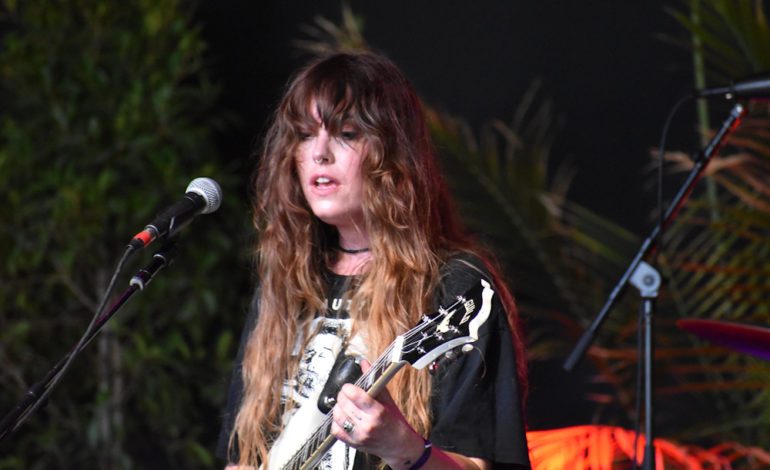

mxdwn sat down with Emma Ruth Rundle to talk about her upcoming album, Engine of Hell. Emma Ruth Rundle’s new album, Engine of Hell, will be released on November 5th, 2021. This album is a portal into Rundle’s journey as a person with snippets of what she has overcome. Listening to this album will make people feel as though they are sitting next to her while she plays the piano and bares her soul. Engine of Hell is composed of poetic lyrics accompanied by stripped-down musical arrangements that let every word not only be heard but felt.
mxdwn: In the press release, I read that you kind of moved away from a more polished version. What drove you to move away from a more polished sound to one that beautifully captures the imperfections of life by exposing your vulnerable memories in the form of music?
Emma Ruth Rundle: A lot of things led to it, I guess, things in my personal life and just a reaction to the other musical projects I had been working on, albums that I’d done, having done a lot of touring with a full band after On Dark Horses and then doing the collaboration with Thou, which is a pretty massive sounding project and it was with four guitarists. After that, it was the right time, you know, to do a smaller and different production approach, the bare-bones thing. I guess less polished, maybe isn’t the right word. I think that it’s just different. It’s more upfront, and it’s not as obscured with effects and things like that.
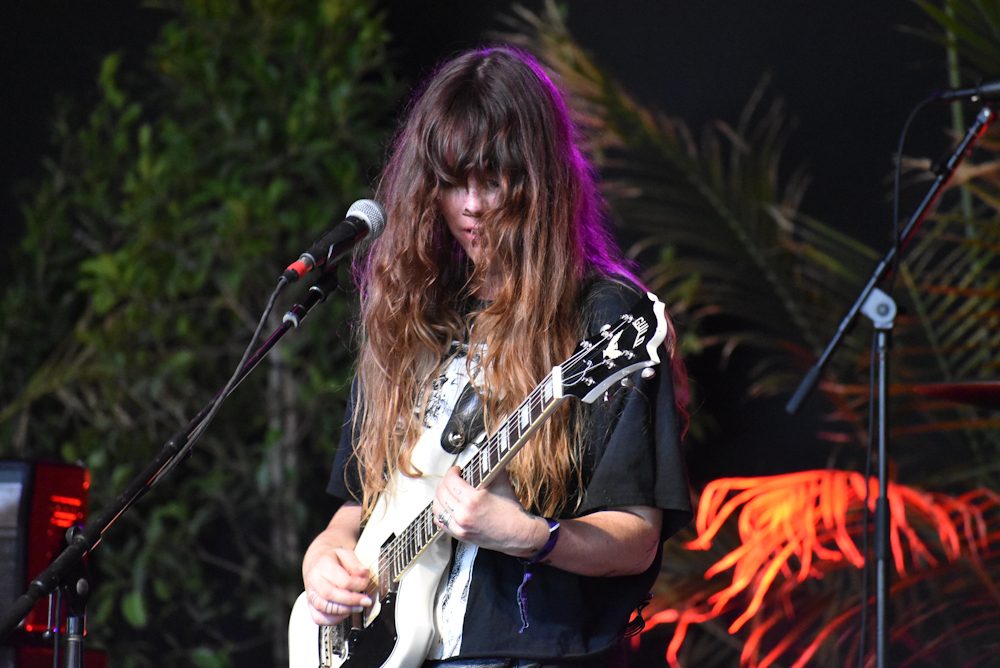

mxdwn: All the songs on Engine of Hell emanate strong emotions, and they create a musical biography. Does each song have the same inspiration behind it, or are they all different?
ERR: Every song is different. They all have sort of different motives, stories and emotions that they’re set out to explore.
mxdwn: After creating two albums with Thou, how did it feel to go back to being a solo artist for this album?
ERR: It felt appropriate. I love that they’re one of my favorite bands, and collaborating with them was like a fantasy come true. I gained a bunch of friends by knowing the members. I love them. It was strange being in the studio completely alone with Sonny Diperri, who co-produced and engineered the record, downstairs in the control room, and I was upstairs in the tracking room in a studio with absolutely no one else. It was eerie and strange but exactly what I needed. That’s what this album needed to be. I think, for the songs that I wrote, this made perfect sense; it felt right.
mxdwn: Did you take any techniques or lessons learned from working with Thou and apply them to Engine of Hell?
ERR: I don’t think so. I think it’s so different. I mean, I think, if anything, this record is more an answer to my last full-length album and just wanting to step away from working with other people. Not because it was a bad experience, but just to sort of re-establish myself.
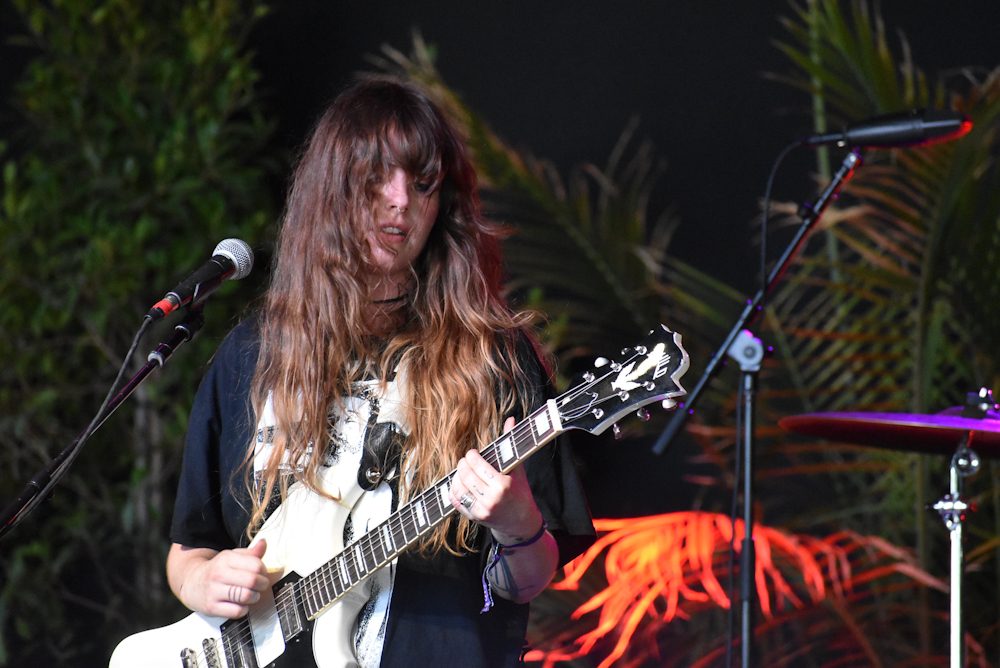

mxdwn: Is there a particular moment that you were reflecting on when you wrote “Dancing Man”?
ERR: Yeah, I have a memory of a day, that for me, was like a perfect day in my life. I have used that memory a lot to focus on in the last couple of years when I wasn’t feeling super great, which I’ve learned is actually a technique in therapy. I do it now in the therapy I’m doing; I’ve created an actual place in my mind that I can go to that’s my safe space. Before I had the one I have now, I used this memory of a really beautiful day that no one could take away from me, and it could never be ruined. So the song is about that day; I really wanted to kind of write a song like Lou Reed’s “Perfect Day” that’s beautiful and wonderful, but there’s kind of a sadness to it, or like a bizarre nostalgia. It’s a little unhinged.
mxdwn: Did reuniting with the piano come about because of the more memoir-style lyrics that you wrote?
ERR: Well, I stepped away from the piano when I was younger because, well, for a lot of reasons, but mainly it was inconvenient and not realistic to play piano. Guitars are so much easier; I mean, there is my guitar sitting right there. I don’t need to plug it in. I can put it on my back and walk around with it. Piano, not the same thing. Even a keyboard, which back in the day when I was a young lass, keyboards sounded like garbage, the piano sound on it is rough. I just gave it up, and I became pretty nomadic. I never had space or could afford a piano after a certain age. I was on tour, or I was living in chaos, living in someone else’s house, having an apartment, staying in a room in a house, there was just not an opportunity really for me to have a piano and spend enough time with it to reconnect. Then, last year, I had the two things I needed, which were a stable space and enough money to have a piano, which was great. I’ve just been yearning for it because I have more of a connection with that instrument as something I could improvise on. It took me kind of back into myself because I probably stopped playing piano when I was like 21 or 22. I’m 38, so I felt like I had said a lot on guitar. I’ve said this in other interviews, but I’d done so much on guitar with what I’ve done in music that I wanted to get back in touch with what the piano had to say.
mxdwn: Was recording and writing Engine of Hell an emotional journey for you, if so, then how, or did it feel more healing?
ERR: It was definitely an emotional journey. Writing this record was completely an upheaval of my life, my lifestyle; everything about my existence changed in relation to this record. I don’t know which one came first if it was like getting sober, writing this record, leaving my marriage, moving back to the west coast; all of these things happened as a result of or in the process of making this record. It’s been intense. I wouldn’t say that I feel better all the time now. I think I needed to make this record to find myself and find what I needed to do in my life to move forward as a human being and that every day it’s still revealing itself to me.
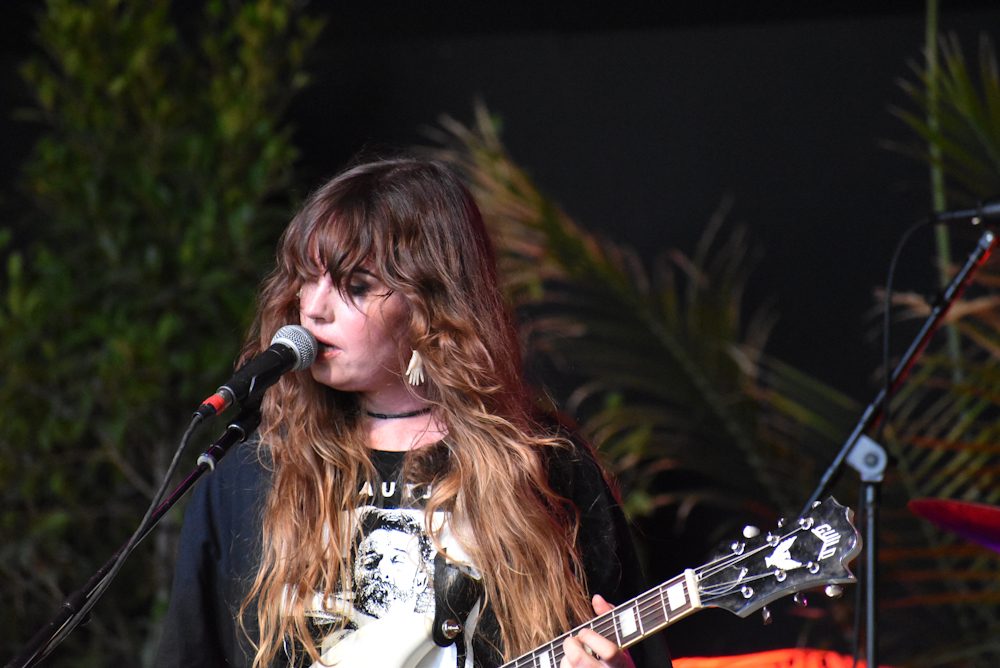

mxdwn: Do you feel that the more stripped-down arrangements allowed the music to give its subject matter more space to sit front and center?
ERR: Absolutely, yes, and that’s a hundred percent intentional. You pretty much nailed that. I wanted the lyrics and the vocals to deliver the content and the story. I worked on this record in a way that was different from other albums; my approach to writing these lyrics was a little bit more poetic. And I wanted that to be audible. The value of the songs is the lyrics, the content and the emotion. The instrumentation should only be there to support that and not get in the way of it.
mxdwn: Do you think that you will continue to do this style arrangement, or do you envision returning to a full band arrangement?
ERR: I have no idea, and for me, this is still unfolding. I haven’t had an opportunity to play any of this music live yet. I will soon. I’m having total nightmares about it, but when I take an album on tour, I learn so much more about the music, and it kind of informs my next step. Like I love playing with the band. There’s so many wonderful things and energy you can access as a musician when you’re working with a group of people you have a great relationship and energy with, but there’s also places you can only go when you’re alone and solo. But then, you’re also carrying the burden of the performance on yourself the entire night. So, I think after doing a year of touring, we’ll see what happens. I don’t know what will be next. I did an improvisational album that I recorded in the beginning of 2020 when I was in Wales, which I wrote that before this and that’ll come out at some point, but as for what I will write next, it’s unknown.
mxdwn: Would you consider doing an album in this capacity again or explore different routes as a musician singer-songwriter?
ERR: I’m not sure. I don’t want to put limitations on anything. I would certainly not say it’s out of the question for me to do something completely different, but I just don’t know. I haven’t been open to it.
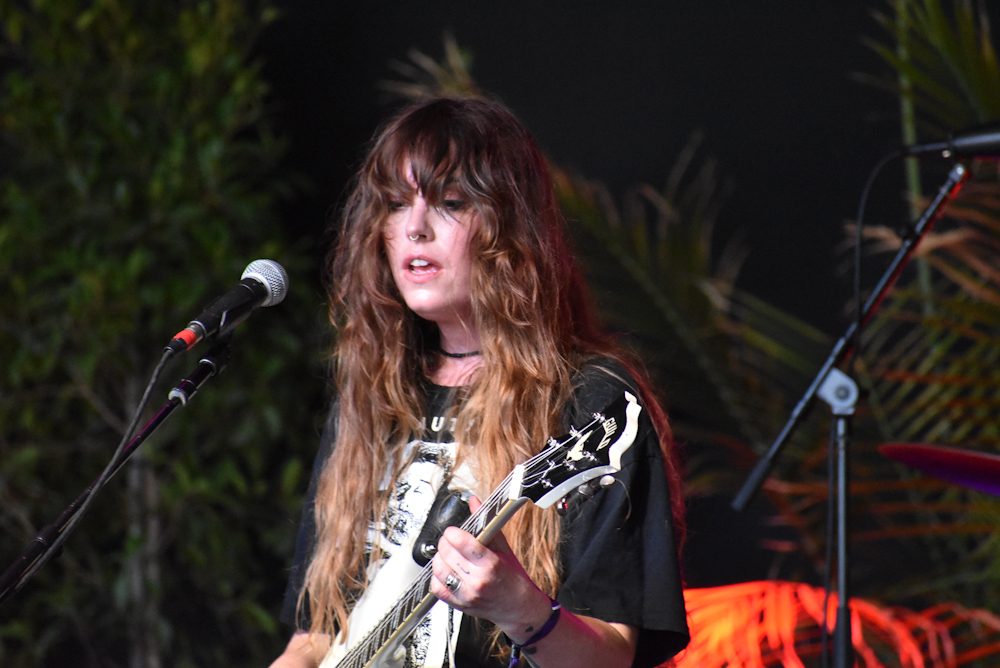

mxdwn: What has changed for you since you finished this album?
ERR: Wow. A lot of things have changed. In my personal life, I’m divorced. I moved across the country. I mean, I guess I could probably leave the relationship stuff out of it. I really have a great relationship with my ex, and we had a wonderful time together in our life being rock and roll people and being artists; it was a good time. It was a good chapter, but I’ve moved back to the west coast. I’m sober. I am doing my best. I’m in therapy. Probably the most interesting thing I’m finding that I’m really interested in is different kinds of performance and art. I loved directing those videos; it was a really huge thing for me. I was like, wow, this is actually exciting. I love this. I’ve started to get into physical movement, something that I didn’t know. I enjoy dancing just in my apartment. That sounds really ridiculous, but I just didn’t know that. I think that there’s something about this album that helped me kind of kill part of an old self and open a door with permission to find a new way and a new self. So it’s still changing regularly.
mxdwn: How did you decide to direct your own music videos? Did it just come about, or did you plan on directing them?
ERR: Well, I have really specific ideas of what I wanted to do for “Return.” Ethan Indorf, who really was like a co-director, but then he only took credit for being the director of photography, helped a lot realize my vision, and the same with the video for “Bloom.” John Bradburn was the co-director, but I had very specific ideas, visuals. I wrote it all down and made pictures of how I want this to be, what the story is, what I want to communicate and what are the references, like what am I referencing with this?
mxdwn: Is there one song that you could point out and say that was the most emotional song that you wrote?
ERR: They’re all different. They’re all pretty different. I think that the one that is a beautiful and emotional song that, like even here, practicing it kind of gets me choked up a little is “Return.” I think the one that is kind of the saddest and almost difficult to listen to and confront is the song “The Company.” It’s pretty dark. We want to make a video for that. That’s coming out soon, that just my best friend and I made, really.
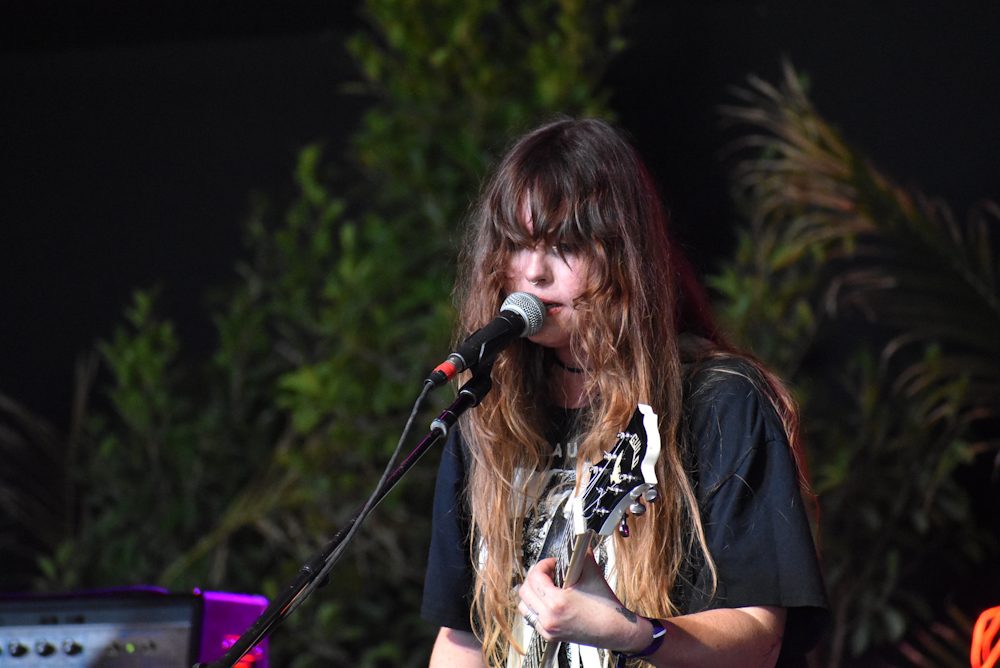

mxdwn: I think this album can help people going forward and coping with their own struggles. What do you want to say to the listeners who can relate so deeply to your lyrics?
ERR: I think that what I would want to say is there’s permission through this for me to change. I don’t think you can ever escape or evade your story, your history, your trauma. I sing very openly about pretty dark stuff on this record. I think that through that, there’s a way of recognizing and acknowledging and making some peace with those things and giving permission to have acceptance about it. Also, with some of the more specific things, find some forgiveness for yourself and for others and finding permission to love yourself. I don’t care how it sounds like that’s pretty hard to do. It’s a big ask, and it’s kind of a battle. Sometimes, loving yourself and self-care is not about just like taking a bath; it’s about doing big, hard things in life that aren’t easy. They can be simple and straightforward but not easy. Like for me, it’s knowing that I have an addiction issue that I need to deal with. There is a way; there is help also for people that are struggling, I’m in a 12-step program that helps me, and to not be ashamed of any of this. My goal is to walk very openly and honestly in this conversation about these issues, and it’s nothing to be ashamed of. I don’t know why it’s not talked about.
Photo Credits: Raymond Flotat
